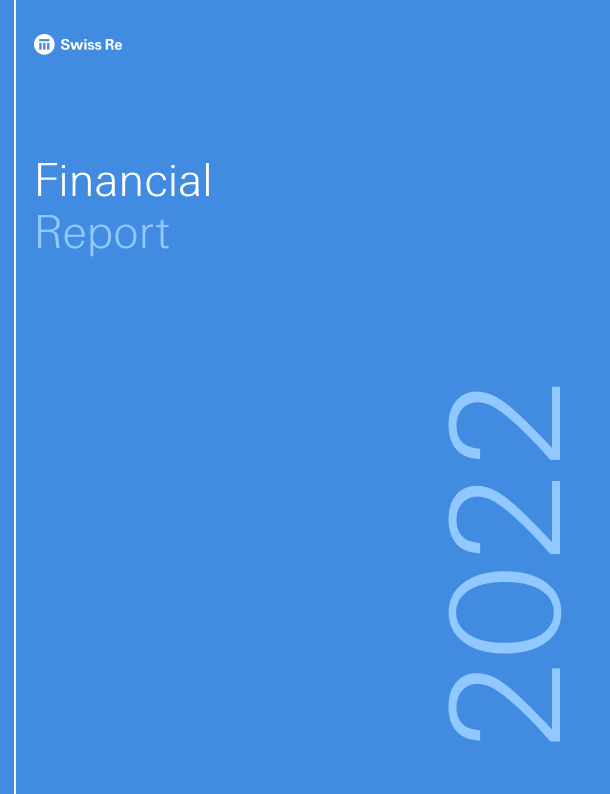Building societal resilience also remains in focus, supporting climate change adaptation, enhancing the world’s ability to recover from disasters and fostering the financial inclusion that comes with expanded insurance access. In order to make insurance more affordable, available and accessible, Swiss Re focuses on groups that could not yet be reached by our industry, such as people with chronic health conditions and rural communities. In 2022, for instance, Swiss Re worked with a partner in China to develop a critical illness product sold through an app-based digital payment platform, helping expand access to millions more people. In the Indian state of West Bengal, Swiss Re partnered with the Agriculture Insurance Company of India, the state government and the National Remote Sensing Centre on a parametric solution for farmers hit by drought.
Swiss Re has also renewed its commitment to promoting diversity in our leadership. Reflecting diversity is of the utmost importance to the Board of Directors.
After the Board of Directors last year made a formal commitment to reach female representation at Board level of 30% or more by the following AGM, Swiss Re has proposed to elect Vanessa Lau, Group Chief Financial Officer of Hong Kong Exchanges and Clearing Limited, and Pia Tischhauser, an Executive Committee member at Boston Consulting Group until 2021, as new Board members at the upcoming 2023 AGM. Following the recently announced Group reorganisation, female representation in the Group Executive Committee will also further increase.
The company has made additional progress on efforts to address all aspects of Diversity, Equity & Inclusion (DEI), as we promote core themes including Gender, Generations, Race & Ethnicity, LGBTI+ and Mental Health. We’ve refreshed our DEI strategy, putting inclusion at its heart to drive greater impact with focus, accountability and commitment from all of us. Our aim is clear: to create an even more inclusive culture that harnesses value from our diversity.
Please see our 2022 Sustainability Report for more information about these and other initiatives at Swiss Re.
Outlook and new profitability targets
A profound shift in the re/insurance market has occurred after years in which the risk landscape where Swiss Re operates was marked by excess capacity and a surplus of capital from traditional and non-traditional providers. Our industry now finds itself at a turning point, as we are experiencing a return to an environment characterised by more sustainable pricing. Swiss Re appreciates the opportunities and responsibilities that come with this reinvigorated risk awareness and stands ready to partner with our clients to support them after catastrophes occur, or even better, help them adapt before an event materialises.
To ensure we are optimally positioned to fulfil this role, Swiss Re announced changes to the Group’s organisational structure in February 2023 to simplify our structures, improve efficiency and enhance client experience. Among changes that take effect in April 2023, the Reinsurance Business Unit will be split into separate L&H Re and P&C Re Business Units, each with its own focused underwriting. We have also established a new Global Clients and Solutions Business Unit to improve engagement with our largest clients and to advance our strategic growth areas.
The Swiss Re that we are building is designed to be a nimbler, leaner reinsurer, where employees are more empowered, decision making is swift and there is improved accountability in the market.
This transformation will also empower Swiss Re toward reaching its 2023 Group financial targets, where we are aiming for Group net income of more than USD 3 billion. Given the high level of geopolitical and macroeconomic uncertainty, Swiss Re aims to maintain its very strong capitalisation in 2023, with the Group SST ratio materially above the 200–250% target range.
P&C Re will target a reported combined ratio of less than 95% for 2023; L&H Re will aim for a net income of approximately USD 900 million; and Corporate Solutions will target a reported combined ratio of less than 94%.
The positive outlook is supported by attractive market conditions and heightened risk awareness among our clients and their customers. Tailwinds are also coming from the expected continued decline in COVID-19 claims and higher interest rates that help lift our investment returns, as well as cost discipline.
Though perceptions of pandemic risk are waning in much of the world, COVID-19 will most likely remain a threat as it becomes endemic and circulates globally for decades to come, causing seasonal waves of infection just like with influenza and other respiratory illnesses. Still, its impact on insurance portfolios will be vastly reduced. Our focus ahead should be helping prepare society for future global health crises.
With the macroeconomic outlook, volatility is likely to continue. Recessions have been forecast in numerous geographies, though the timing, severity and duration of potential downturns remain uncertain.
Though the volatility we experienced in 2022 is likely to continue unabated, we are confident that our approach to evaluating, pricing and mitigating risk will drive us forward to achieve our 2023 targets.
[1] This includes prior-year and current-year reserves in the form of IBNRs.
[2] Net of reinstatement premiums of USD 0.2 billion.
[3] Normalised combined ratio assumes average large natural catastrophe loss burden and excludes prior-year reserve development.
[4] Net zero means that for every tonne of GHG emissions that cannot be avoided, an equivalent amount of CO2 needs to be removed from the atmosphere and stored permanently.















